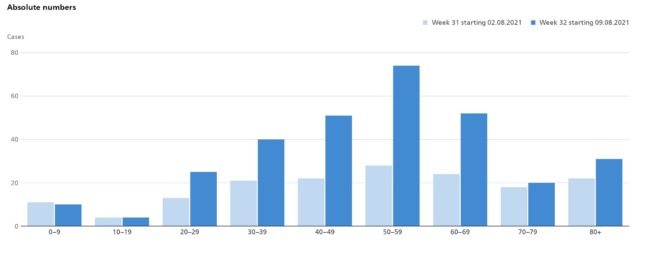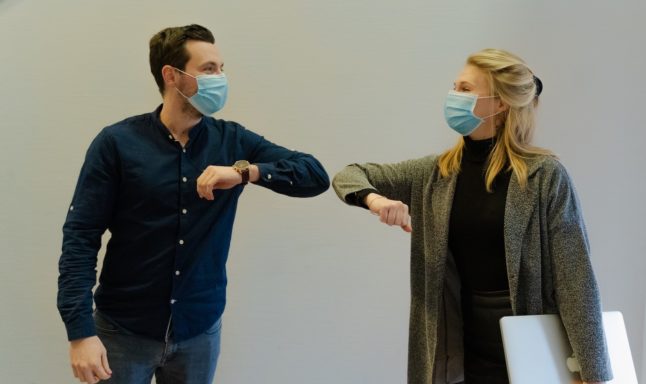“In recent days, intensive care units in Switzerland have recorded a very strong increase in seriously ill Covid-19 patients”, the Swiss Society of Intensive Medicine (SSMI) said in a statement released on Thursday.
This means that “health and intensive care sector is again exposed to increased pressure” SSMI noted.
It added that the vast majority of these people “have not been vaccinated. In addition, critically ill Covid patients who are treated in Swiss intensive care units are getting younger and younger”.
SSMI’s message echoes the research by public broadcaster RTS, which showed that the number of coronavirus hospitalisations of fully vaccinated people in Switzerland is approximately 12 times lower than that of the unvaccinated.
For the period RTS analysed — July 1st to August 15th, there were 8.3 hospitalisations per million among those who had both shots. In contrast, this number 105.9 per million for the unvaccinated patients.
These numbers are confirmed by the Federal Office of Public Health (FOPH), which found that hospital admissions of vaccinated people remain relatively rare.
READ MORE: UPDATE: What is the risk of catching Covid and getting sick in Switzerland if you are vaccinated?
But as the highly contagious Delta variant now accounts for over 98 percent of cases and attacks primarily those who have not been immunised, the number of hospital admissions is growing.
For instance, while there were fewer than 10 coronavirus patients in Geneva’s University Hospitals (HUG) until the middle of July, the number now stands at 52.
Les HUG ont repris la publication en ligne de l'évolution des patients Covid hospitalisés.
52 patients aujourd'hui.https://t.co/uwS4CKh5rI pic.twitter.com/opRJIsXfu7— Laurent Cimasoni (@LCimasoni) August 18, 2021
The same upward trend in seen in other medical facilities as well.
At the cantonal hospital in St. Gallen, the number of coronavirus patients is also climbing.
“On Wednesday morning, 28 Covid patients were hospitalised, including ten in intensive care unit”, said hospital spokesperson Philipp Lutz.
“Most of them are returning travellers who have not been vaccinated”.
“If the number of severe cases continues to increase sharply, there will soon be bottlenecks in the intensive care units”, Lutz warned, adding that “it is important and essential to vaccinate as many people as possible as quickly as possible”.
The cases are also increasing at the Inselspital in Bern.
“This includes critically ill patients who require intensive medical treatment,” said Petra Ming, hospital spokesperson. “These are mostly unvaccinated people in the 40 to 60 age group”.
How many people are in intensive care in Switzerland due to Covid?
In Switzerland as a whole, the numbers increased as well.
This FOPH chart shows the difference in admission rates between the week starting on August 2nd (light blue) and August 9th (dark blue), along with the most impacted age groups.
The figures — last to be published — are 10 days old, so the numbers are higher now.

In all, 183 intensive care beds are taken up by patients.
To avoid the overcrowding of medical facilities, as was the case during the first and second waves in the spring and fall of 2020, SSMI is urging the holdouts to get vaccinated.
“It is a crucial measure in order to effectively manage the pandemic. Therefore, all people who can be vaccinated are encouraged to do so as soon as possible. People who get vaccinated protect themselves against serious illness from the coronavirus and help prevent it from spreading to others”, it said.
READ MORE: Covid infections in Switzerland skyrocket



 Please whitelist us to continue reading.
Please whitelist us to continue reading.
Why is this article on the homepage if it dates back to August? Clickbait?